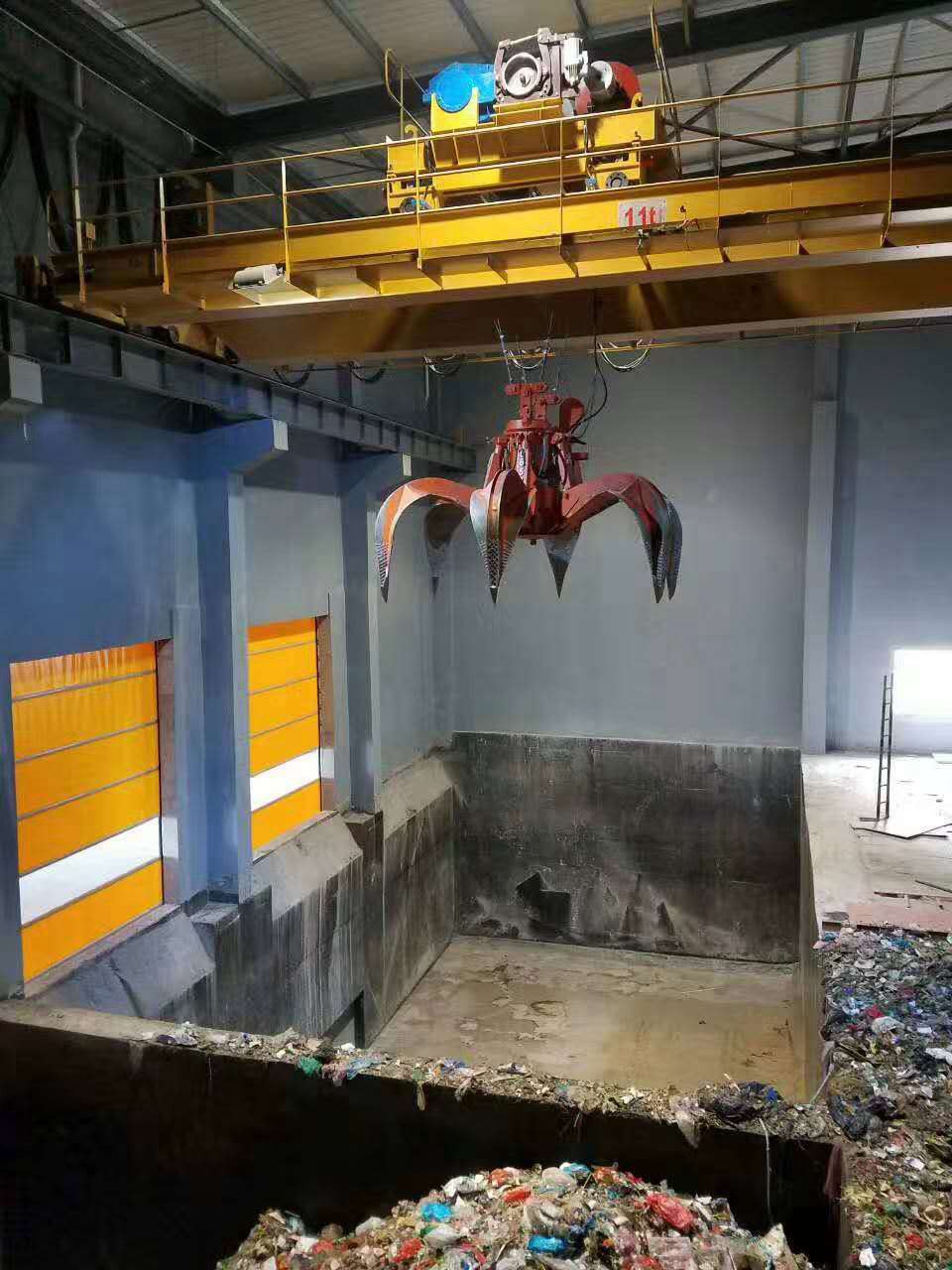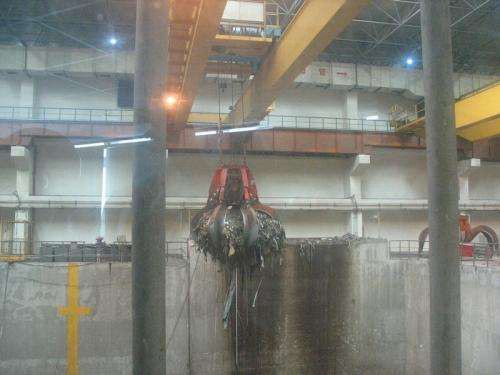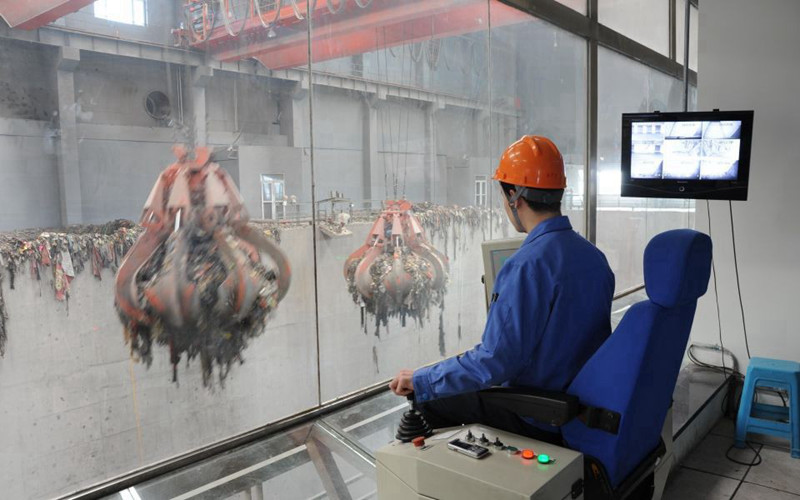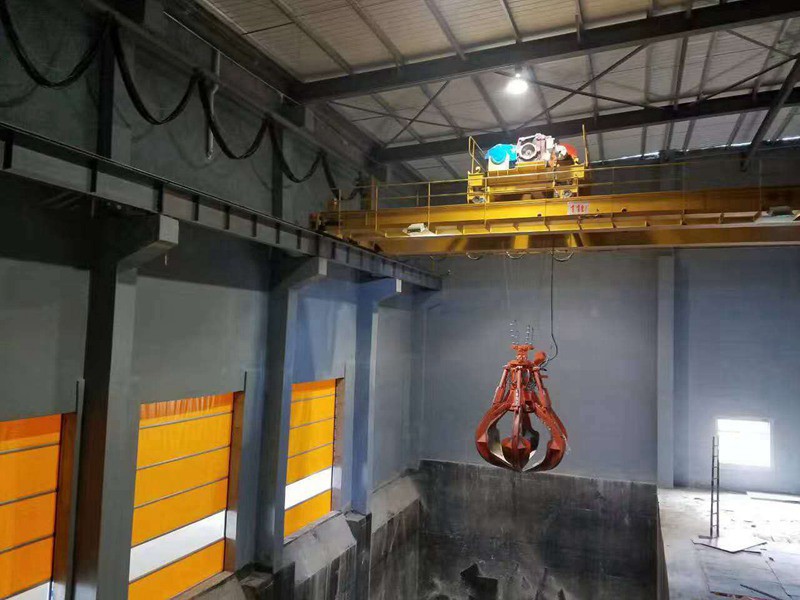Sinokocrane Waste Grab Crane is an advanced material handling system designed specifically for waste processing and recycling facilities. It includes a range of components that work together to provide efficient waste handling and improved automation.

| Component | Description |
| Crane | Provides the primary structure and support for waste handling operations |
| Control System | Comprises control handle, PLC, hand control console, PC, inverter, operating point, feed port status, and video monitoring module for precise and automated control |
| Main Drive Motor | Powers the crane's movements and operations |
| Crane Cart | Supports the crane's movement along the runway rails |
| Grab | Specialized attachment for handling various types of waste materials |
| Tray | Used for waste storage and transportation |
| Hoisting Drum | Used to lift and lower the grab attachment |
| Motor Car Handrail | Drives the crane's lateral movement |
| Inverter & Motor | Installed on each crane to control motor speed and torque |
| Photoelectric Encoder | High-precision encoders installed coaxially on each motor to provide position feedback |
| Ultrasonic Sensor | Emits signals to determine the position of each crane in the system |
Automation: The PLC and computer-based control system enable automatic control of crane operations, reducing manual intervention and improving efficiency.
Simple operation: The control handle and hand control console provide easy-to-use interfaces for operators, ensuring safe and efficient waste handling.
Versatility: The grab attachment can handle a wide range of waste materials, making it suitable for various waste processing and recycling applications.
Enhanced safety: The use of high-precision photoelectric rotary encoders and ultrasonic position sensors ensures precise control and positioning of the crane, reducing the risk of accidents and damage to equipment.

















